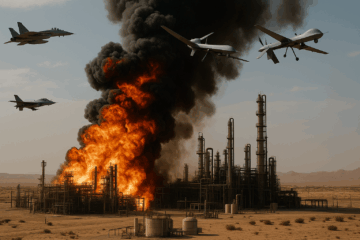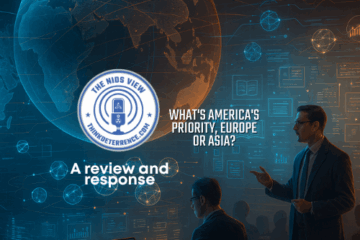As the war in Ukraine rages on, more than two years since it began, many observers are trying to determine who is winning and who will win in the end. There is no easy answer as analysists have differing criteria upon which they base their assessments. This leaves ample room for further assessment.
Russia’s Strategic Mistakes and Their Consequences
Russia’s decision to attack Ukraine in 2022 was clearly a strategic blunder. Russian President Vladimir Putin believed he could seize control of Ukraine with a swift military strike, install a government aligned with Russian interests, and prevent the admission of Ukraine into the European Union and the North Atlantic Treaty Organization (NATO). However, the invasion stalled and is now widely seen as a disaster for Russia.
Now, two years after the start of the war, Russia has neither installed a government aligned with its interests in Ukraine nor succeeded in increasing its own security. On the contrary, the war led to economic sanctions, severed Russia’s relationship with the West, and diminished Russia’s military reputation, which was once formidable to its rivals. Putin also underestimated the probability that he would require assistance from China, Iran, and North Korea to maintain the fight, and, incorrectly, assumed that NATO member-states would fail to act in effective coordination and support Ukrainian independence. Russia is now trapped in a prolonged war, Russia is beholden to its junior partners, and the Russian military is now proven to be largely ineffective. NATO is now working more closely together than it has since the Soviet Union collapsed and two new countries (Finland and Sweden) are now members of the alliance. Entering the war in Ukraine was a strategic mistake for Russia, which has exposed the country as an aggressor that is driving defensive preparation in Europe.
The West has imposed more than 11,000 sanctions on Russia, about 3,500 Western companies left the country, and nearly 1,000 Russian elites left their country. Russia’s relations with the West have deteriorated significantly, leading to political and economic isolation from the free world.
These strategic mistakes not only weakened Russia’s competitive position but also revealed its wider vulnerabilities. Russia is now caught in a prolonged war from which it is difficult to exit with dignity. Recognizing this opportunity, the United States and its allies are unlikely to allow Russia to easily escape this crisis. As a result, Russia is being forced to move closer to China and regional powers such as Iran and North Korea. Although this proximity is necessary for Russia economically and strategically, it primarily benefits China and increases China’s influence in global competition. Therefore, in this geopolitical game, Russia has not only failed to achieve its goals, but has also significantly fallen behind its competitors, diminishing its prospects of emerging as a great power in the international system.
America’s Strategic Mistakes and Their Consequences
The war in Ukraine is not in the United States’ best interest because it distracts from America’s larger effort to deter Chinese aggression against Taiwan and elsewhere in Asia. This distraction is allowing China to expand their influence globally, especially in areas where American influence is waning.
Early in the war, the United States tried to weaken Russia through extensive economic sanctions. Although these sanctions damaged the Russian economy temporarily, they did not achieve American objectives in the long run as Russia found new outlets for its energy products. Unexpectedly, Western pressure brought China, Iran, North Korea, and Russia closer together, strengthening China’s position vis-à-vis Russia—making China the senior partner.
The increasing economic and military cooperation between these countries helped China expand its influence directly and indirectly. Because the United States was deterred by Russian nuclear threats from providing Ukraine war-winning military tools, the war has dragged on—all to the benefit of China.
America’s distraction by Ukraine, the conflict in Israel, the presidential election, and other issues is leading the United States to neglect long-term strategic threats. As a result, while China, avoiding direct military conflicts, is increasing its economic and technological power globally. The disastrous American withdrawal from Afghanistan is attributed by some analysts as an important reason why Vladimir Putin thought he could get away with an invasion of Ukraine—the perception of American weakness.
The sum of these strategic mistakes puts America in a position where Russia and the United States are weakened by the war. When America is seen as weak, anti-American groups in different parts of the world see an opportunity. The same is true of all of America’s enemies.
China’s Opportunity in Global Competition and Its Benefits
Unlike Russia and America, China gained a significant advantage in global competition by choosing a strategy of self-restraint and prioritizing economic growth and technological advancement since the war began. Despite predictions that China would invade Taiwan because the United States is focused on Ukraine—and Israel—China’s lack of military action is a sign of this country’s smart and accurate calculations about any such invasion. By pursuing an economic oriented approach, China is focusing on addressing its own internal economic issues while trying to outpace the United States. By focusing at the operational level, avoiding military conflicts, China is using this time to petter position itself for a war that it too sees as likely.
China’s strategic partnerships and economic engagement, especially with developing countries, are gradually changing the balance of global power. This change is evidenced by the increase in the number of countries that are willing to interact with China on its terms and see it as a balancer against Western influence. By capitalizing on the strategic mistakes of other great powers and presenting itself as a champion of global peace and economic development, China is positioning itself as a leader in the new world order.
The Future Perspective of Global Competition
However, America still remains the greatest of great powers because it still carries the most influence in world affairs. Chinese power has, however, increased, leading Chinese leaders to be more sensitive to the expression position in the international system. Contrary to the prevailing opinion, the war in Ukraine does not benefit the United States. It benefits China.
China continues to strengthen its position and turned the game in its favor by taking advantage of the strategy of restraint and economic growth. The United States has inadvertently helped strengthen China’s position by focusing too much on Russia and the Ukraine war. Russia is clearly falling behind its great power peers.
If China continues with its current policies, it should avoid conflict and continue to grow economically and in its influence over other nations. There are still opportunities to change China’s trajectory.
America should adjust its approach by focusing on its vital interests and associated threats—China—instead of focusing on lesser interests. Additionally, preventing the increase of China’s influence in various regions of the world, especially in Asia and Africa, should be the priority of American foreign policy. It is not too late, but the time to act is now.
Dawood Tanin is a professor of political science at a private university in Afghanistan. The views expressed are his own.





How does the Ukraine war highlight the dynamics of great power competition on the global stage?
Regard IT Telkom